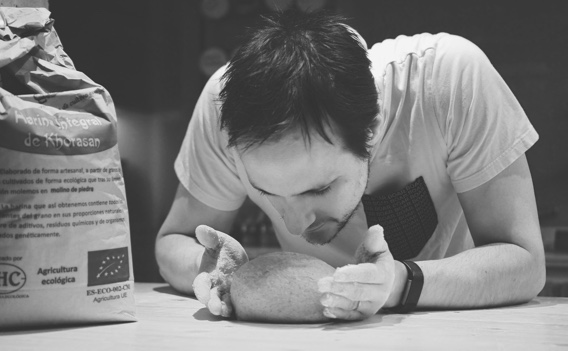Wednesday 2/9/2020
PHOTOS: Alejandra Misiolek Marín
Text: Alejandra Misiolek Marín
People who diet, in effect, put on weight. Why?
81% of people who go on a diet to try to lose weight fail and only 24% of Spaniards are satisfied with their weight (1). Moreover, studies seem to confirm that dieting does indeed make us put on weight (2).
According to statistics, in the United States more than 60 billion dollars are spent on diets every year. Paradoxically, at the same time that we are dieting more and more, obesity rates in the world are increasing.
The main reason why we do not lose weight despite dieting in the long run is because we abandon the diet. Most people blame themselves for not being able to stick to a diet. But if more than 80% of people fail, could it be that the problem is in the diets and not in the people?
If you follow a low-calorie diet, you will lose weight, and even if it’s not pure math, that’s what will happen. But diets are made in such a way that they are impossible to sustain in the long term, no matter how much willpower or motivation you have. And why is that?
- In a famous experiment called “chocolate and radishes” scientists have shown that willpower is something that has a limit and the more we use it, the more it is depleted, as if it were a muscle.
Study participants were asked to enter a room where there were chocolate cookies and radishes. One group was allowed to eat what they wanted, and others were forbidden to eat the cookies, they could only eat the radishes. They were then asked to work on a complicated problem that seemed impossible to solve and generated frustration. The participants, who were allowed to eat cookies, held out for an average of 19 minutes, while those who had to resist the temptation of chocolate, only held out for an average of 8 minutes. The scientists concluded that resisting a temptation has produced a psychic cost and caused them to be more vulnerable to frustration and to give up more easily.
We can draw a conclusion that the more restriction we endure with diets and the more frustration they cause, the less guarantee we have of sticking to them, regardless of character or other individual differences.
2. Dieting causes us to enter a vicious cycle of restriction-bingeing and guilt.
Low-calorie diets, in addition to restricting the amount of food, often impose rules that classify foods into good and bad. When some foods are forbidden, we begin to value them more, we put them on the pedestal and then we allow food to gain a power over us – we seem to desire them more, we idealize them. Also, when some foods are restricted, we begin to feel deprived. Then, when willpower is exhausted, we give in and eat the “bad foods” that have been so forbidden and so much desired. As a result, we feel guilty and out of control. We abandon the diet and binge on the foods we have missed so much. We develop a love-hate relationship with food and feel we have failed. When, in reality, diets failed us.
3. Diets are external authority and dieting means following certain rules. This, in the long run, causes us to disconnect from our body, from our needs and from the ability to listen to hunger and satiety, signals that guide us on how, when and how much to eat. We begin to use the mind to guide us and deregulate the systems that control these processes intuitively (for more information, click here).
4. Dieting lowers metabolism. In a state of fuel shortage, our body has to choose which cells to keep providing energy to and which not. It then chooses the cells that are a priority for functioning. Muscle cells, if they are not being used, are not part of the priority cells. Therefore, if we go on low-calorie diets and do no physical activity, we end up losing muscle mass. However, muscle cells are the cells that burn a lot of calories for their maintenance, more than many other cells in our body. This means that the less muscle mass we have, the lower our basal metabolism. When we finish a low-calorie diet and go back to our old habits, our body replenishes adipose tissue very easily. But if we do not do physical activity, we do not replenish muscle mass. This causes us to increase the percentage of fat in our body and, in part, is responsible for the famous yo-yo effect of dieting.
For all these reasons we have to stop falling into the vicious circle of blaming ourselves for not sticking to diets, since the feeling of guilt conditions us to binge eat to feel better (in the short term), and, paradoxically, these same binges cause even more guilt and discomfort in the long term. To compensate, we try to feel better by doing more dieting and more restriction, but we fail again and fall back into guilt and binge eating. On the other hand, we need to look for an alternative to dieting. If we have evidence that diets do not work, we cannot keep doing them in the hope that “this time they will“. This would-be self-deception.
Sources:
- https://www.efesalud.com/ocho-de-cada-diez-personas-que-hacen-dieta-fracasan/
- Siahpush, M., Tibbits, M., Shaikh, R. A., Singh, G. K., Kessler, A. S., & Huang, T. T. K. (2015). Dieting increases the likelihood of subsequent obesity and BMI gain: results from a prospective study of an Australian national sample. International journal of behavioral medicine, 22(5), 662-671.
- https://www.worldometers.info/weight-loss/
- Baumeister, R. F., Bratslavsky, E., Muraven, M., & Tice, D. M. (1998). Ego depletion: Is the active self a limited resource?. Journal of personality and social psychology, 74(5), 1252.
